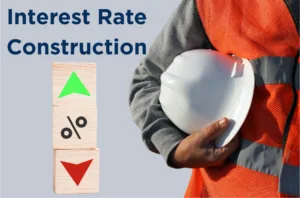We’ve said it before and we’ll say it again: it’s not always the highest offer than wins.
We see it all the time – multiple offers come in on a property, and everyone wants to know the same thing: what’s going to make mine stand out?
For sellers, it’s not only about the price. Sure, that’s important, but they also want to have confidence in the deal. They want to know that the deal will actually close, and that the buyer has the capacity to follow through. So if you’re in the market to buy, especially in a competitive situation, showing your qualifications clearly can go a long way.
Here are four ways to show you’re a qualified buyer and why they matter.
1. Proof of Funds (or Where They’re Coming From)
If you’re submitting a cash offer, or you’re bringing significant equity to the table, show that you have the money.
That can mean including a bank statement, a letter from your financial institution, or another form of proof. But if your funding is coming from a group of investors instead of your personal reserves, share that too. Let the seller know who those investors are, and highlight your track record with them. Have you raised capital with them before? Did those deals go smoothly?
The point here isn’t to overshare. It’s to remove any uncertainty that the seller might feel. When they can see that you’ve done this before, and that the money will be there when it counts, it gives them one less thing to worry about.
2. Your Schedule of Real Estate Owned
Another helpful document to include is a schedule of real estate owned. This is essentially a list of properties you already own. That could mean rental properties, commercial investments, vacation homes, or even short-term rentals. If you own businesses with real estate holdings, those count too.
What this shows is that you’ve been through the process before – and that you’ve successfully acquired, owned, and managed properties over time. It doesn’t have to be an exhaustive list. Just enough to show that you’re not new to this.
3. A Short Biography
It might feel a little awkward to talk about yourself, but a brief biography can make a big difference.
In many cases, the seller doesn’t know who you are. And if they’re comparing two similar offers, a clear picture of your experience can tip the scales. This doesn’t need to be your full resume, though. Think of it more like an introduction.
Including things like:
- Who are you?
- What kinds of properties have you owned or invested in?
- What’s your background?
Even better? If you can connect your experience to the specific property you’re offering on. If you own a disaster mediation company, and the building you’re bidding on has some layout quirks or deferred maintenance, point that out. Show the seller you understand what you’re getting into, and that you’re well-qualified to take it on.
This is especially relevant if the seller held the property for a very long time, and even more so if they were the original owner, builder, and/or designer. They probably have a sentimental attachment to this property and don’t want to leave it with just anyone.
4. A Relationship with a Lender
If your offer involves financing, the seller wants to know the loan will go through. So many deals stall or completely fall apart because of financing issues. You can help ease that concern by showing that you already have a lender lined up.
A pre-approval letter is a good start. But if you have a strong relationship with a particular bank or mortgage broker, and you’ve worked together on other deals, mention that too. If your lender is willing to provide a short letter vouching for your expereience and readiness, even better.
It shows that you’re not just shopping around. You’re serious, you’ve done this before, and you’re able to move quickly when the time comes.
Conclusion
Showing your capacity as a buyer isn’t about proving yourself. It’s about giving the seller confidence that the deal will close smoothly. If you can clearly demonstrate that you’re qualified, experienced, and financially prepared, your offer has a much better chance of standing out – regardless of where the final number lands.
Having guidance in a competing offer situation is one of the many benefits a buyer representative agent can offer you as you look for a new investment property. Our expert advisors have decades of experience representing buyers – contact us today to get started.





